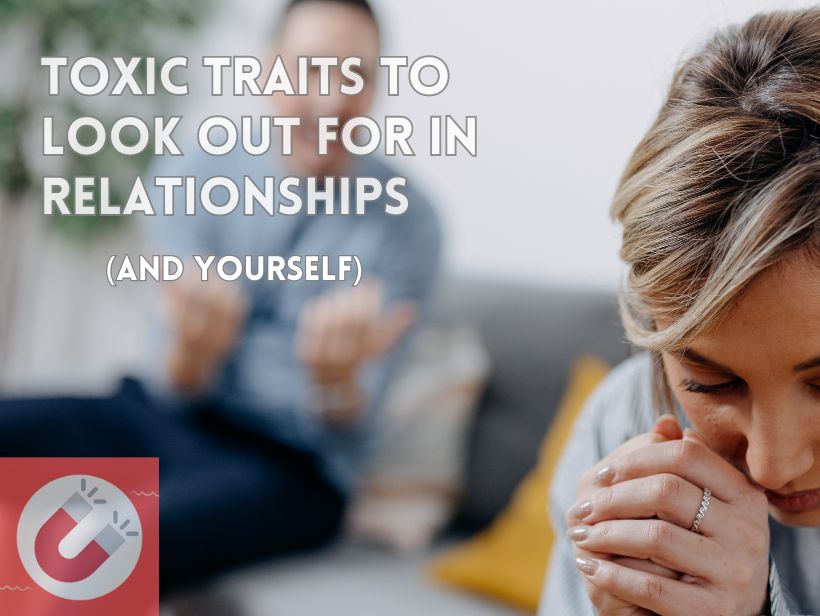When it comes to improving your social skills, assertiveness is key. Many people struggle with the idea of saying “No.” They feel like they need to please everyone and say “Yes” to every request.
They don’t want to disappoint people or strain the relationship. This can be a huge drain on your time and energy. It can also lead to resentment.
Maybe you rank high on the personality trait of agreeableness. Maybe your family or culture does not allow for any signs of selfishness. Whatever the reason, it is important to challenge your preconceived notions and learn how to be assertive.
What Are Assertiveness Skills?
Assertiveness skills are the ability to communicate your thoughts, feelings, and needs in a clear, direct, and respectful way. Assertive people are able to stand up for themselves without being aggressive or passive. They are able to express their opinions and beliefs without being afraid of of a little direct conflict or criticism.
Assertiveness could be thought of as a collection of social communication skills that can be learned and improved with practice. Knowing how to be more assertive helps individuals stand up for themselves, build better relationships, and feel more confident in themselves.
Here are some of the most important components for effective assertiveness skills.
1. Clear Communication
One of the key elements of assertiveness is the ability to communicate clearly. This involves expressing your thoughts and feelings in a way that is easy for others to understand. It means avoiding vague language and being precise in your communication.
2. Boundaries Setting
Assertiveness also includes the ability to set healthy boundaries. This means recognizing your own limits and communicating them to others. Setting boundaries involves saying “no” when necessary and protecting your own time, energy, and well-being.
3. Emotional Regulation
Being assertive requires controlling your emotions, especially in stressful or confrontational situations. Instead of reacting aggressively or passively, assertiveness involves calmly stating your position or needs.
4. Active Listening
Assertiveness is not just about expressing yourself, but also about listening to others. Active listening involves giving your full attention to the speaker, understanding their point of view, and responding thoughtfully.
5. Non-Verbal Cues
Assertiveness also involves understanding social cues and non-verbal communication. This includes maintaining eye contact, having a firm handshake, and using open body language to convey confidence and respect.
Can Assertiveness Be Learned?
Assertiveness is one of the most important social skills for adults, and the good news is that it can be learned at any age. Assertiveness is a skill that can be learned and improved with practice, helping individuals build better relationships and feel more confident in themselves.
Assertiveness is the ability to express yourself in a clear, confident way while respecting the rights of others. When you are assertive, you can set boundaries and stick to them. You don’t have to be rude or aggressive to do this.
Learning how to say “No” in a respectable but assertive way can help you maintain better boundaries in your life. This is a skill we practice in the first level in the Jaunty Gym.
What is the Difference Between Assertiveness and Aggressiveness?
Assertiveness and aggressiveness are often confused, and sometimes this confusion can lead to a lack of assertiveness. So it’s important to know that they are distinctly different communication styles.
- Assertiveness is characterized by expressing one’s thoughts, feelings, and needs in a clear, respectful, and confident manner. Being assertive involves standing up for oneself while also considering the rights and feelings of others.
- Aggressiveness is usually characterized by expressing oneself in a forceful, dominating, or hostile manner. Aggressive individuals may disregard the feelings and rights of others, often seeking to control or overpower them.
For example, assertiveness is politely and firmly stating that a deadline is not feasible and suggesting an alternative, while aggressiveness might be angrily demanding an extension.
How To Develop Assertive Skills
Assertiveness skills are essential for effective communication and building healthy relationships. They enable you to express your thoughts, feelings, and needs in a clear, direct, and respectful manner. Developing assertiveness skills can boost your confidence and help you navigate various situations in your personal and professional life.
Here are seven steps to help you develop and improve your assertiveness skills.
1. Listen to your “self”
The first step to becoming more assertive is to recognize your own thoughts and feelings. Understand your needs, wants, and emotions in different situations. Developing a strong sense of self-awareness will make it much easier for you to communicate your thoughts and feelings more effectively to others.
2. Use “I” statements
When expressing your needs and wants, use “I” statements to take responsibility for your feelings and avoid blaming others. For example, instead of saying “You always make me feel bad,” say “I feel bad when you do that.” This approach promotes a more constructive and respectful conversation.
3. Be direct and honest
Communicate with others in a direct and honest manner. This doesn’t mean being rude or aggressive; rather, it means being clear about your intentions and not trying to manipulate or deceive others. Direct communication helps prevent misunderstandings and fosters trust.
4. Be prepared to compromise
In some situations, you may not be able to achieve everything you want. Be prepared to compromise by giving up something to reach an agreement that is acceptable to everyone involved. Compromise demonstrates flexibility and a willingness to collaborate for a mutually beneficial outcome.
5. Practice in low-stakes situations
Developing assertiveness skills takes time and practice. Start by practicing in low-stakes situations, such as asking for a favor from a friend or making a suggestion at work. As you become more comfortable, gradually progress to more challenging situations.
6. Seek support from a trusted friend or family member
Share your assertiveness goals with a supportive friend or family member. They can offer encouragement, feedback, and advice as you work on improving your assertiveness skills. Having someone to discuss your progress with can be invaluable in your journey.
7. Participate in social activities
Engage in social activities that require interaction with others, such as joining clubs, attending workshops, or participating in group discussions. These experiences provide opportunities to practice your assertiveness skills in real-life situations and help you become more comfortable with expressing your thoughts and feelings.
Remember, like all social skills, practice makes perfect. The more you practice listening to yourself and being assertive in different contexts, the more confident you will become in all future situations.
Why Must We Learn To Say No?
Learning to be assertive in social and personal situations is an important communication skill because it helps you to express your thoughts and needs clearly while also being respectful of others.
Research has shown, assertiveness leads to open discussions where everyone’s views are considered, which can result in solutions that benefit everyone involved. Having assertiveness skills can also make your relationships stronger and reduce the stress by avoiding unnecessary arguments.
In a society where being agreeable and accommodating is often seen as the norm, the significance of saying “no” is very underrated. However, knowing how to say and when to say it, makes it one of the most powerful words in your vocabulary. Knowing what to say no to can have a monumental impact on one’s career, mental health, romantic relationships, and overall quality of life.
In the hustle and bustle of modern life, juggling between personal, professional, and social obligations, learning to say “no” becomes indispensable. It’s a tool for setting boundaries, protecting yourself from toxic people, and making conscious choices.
It empowers individuals to take control of their lives, to be mindful of their limits, and to avoid being submerged in commitments that can drain them emotionally and physically.
Here are the top reasons why it’s so important to learn to say “no”.
1. Saying “No” will save you time and energy
Saying “no” is essentially a preservation strategy. When you protect your resources by saying “no” when necessary, you can invest them where they are genuinely needed and can make a positive impact.
Pro tip: If you are constantly saying “Yes” to everything, you will quickly find yourself overwhelmed. You will not be able to keep up with all the commitments you have made. This can lead to burning out and feeling resentful.
Imagine a friend asking you to go to their weekly DJ gig every weekend. At first, you are excited to support them. But after a while, it becomes too much. You start making up excuses not to go. Eventually, you stop taking their calls altogether.
If you had been assertive from the beginning and said “Thanks for asking but no, I can’t come every weekend. I’ll let you know one week ahead of time the ones I can come to,” there would not have been any tension or hard feelings. You would have saved yourself a lot of time and energy.
2. Saying “No” allows you to set boundaries
It is important to know your limits. If you do not set boundaries, people will take advantage of you. They will assume that you are always available and that your time is unlimited. This can lead to burnout and resentment.
When you learn to be assertive, you can set boundaries in a clear, confident way. For example, let’s say your boss asks you to stay late every night this week to finish a project. You know that you have other commitments this week and you need time for yourself. You can say “No, I can’t stay late every night this week. I am available Monday and Wednesday nights.”
When you say no you are asserting your rights. You are telling the other person that you have a right to your own time and energy. You don’t have to do everything that is asked of you. It is okay to put yourself first sometimes.
Pro tip: Make sure that the alternatives you give people are something you are OK with. If you say, “I can’t help you move to a new apartment this weekend but maybe Tuesday morning?” Be sure that you are fine with it come Tuesday. Alternatives are not necessary, be ok with silence after the “No.”
3. Saying “No” helps you avoid resentment
If you do not learn to be assertive, you will end up feeling resentful toward the people in your life. This is because you will not be able to set boundaries. You will say “Yes” to things that you don’t want to do. You will end up doing things that you are not passionate about.
It is important to learn how to say no in a respectful way. This way, you can avoid feeling resentful. You can still be a good friend or family member while setting boundaries.
You cannot control how someone else reacts to what you say or do. You can only control your actions and words. If it creates enough animosity from them you should reevaluate the relationship – because a healthy relationship should not require you to put yourself in uncomfortable or even dangerous situations.
Pro tip: How people react to your no’s shows a lot about the relationship. If someone gets mad or tries to guilt you when you say no, that is a huge red flag. They do not respect your boundaries and they are not worth your time or energy.
4. Saying “No” can help you learn more about yourself
When you learn to be assertive, you will start to pay attention to your own wants and needs. This can be a difficult process at first. You may have been taught that it is selfish to put yourself first. However, it is important to learn what you want and need to be happy.
When you are constantly saying “Yes,” you are not giving yourself time to figure out what you want in life. You are not taking the time to explore your own interests. This can lead to a feeling of emptiness or dissatisfaction.
Pro tip: Saying no can help you find your voice. When you learn to be assertive, you will start to find your voice. This is an important part of personal growth. You will learn to stand up for yourself. You will learn to communicate your wants and needs.
5. Saying “no” leads to better decision making skills
Learning to say “no” sharpens your decision-making skills. When you practice evaluating whether to accept or decline a request or opportunity, you develop the ability to assess situations critically. You consider the consequences and benefits more carefully, which can translate into better decision-making in various aspects of life. This cultivated skill can positively affect your career choices, relationships, and personal life.
Pro Tip: To further enhance your decision-making skills, practice mindfulness and reflect on the reasons behind your decision to say “no.” Consider keeping a journal where you write down the decisions you make and the reasons behind them. This practice will help you develop an understanding of your priorities and values, which is essential in making informed decisions.
6. Saying “no” helps you build self respect and confidence
When you say “no” to things that don’t align with your values or that overstretch your limits, you are demonstrating respect for yourself. This self-respect can, in turn, enhance your self-esteem and confidence. People are often more likely to respect individuals who show they have a sense of self-worth. Asserting yourself by saying “no” when needed sends a message that you value your own time, energy, and well-being, which can lead to others respecting you more as well.
Pro Tip: Combine saying “no” with positive affirmations. When you need to say “no” to something, follow it up by mentally or verbally affirming your worth and the importance of your boundaries. For example, tell yourself, “I am making the right choice for my well-being,” or “My time and energy are valuable.” This practice reinforces your self-respect and boosts your confidence.
7. Saying “no” contributes to better mental health
Saying “no” when necessary can significantly contribute to better mental health. Continuously overcommitting yourself can lead to stress, anxiety, and even depression. However, by learning to say “no,” you can avoid these mental health issues by not overloading yourself with commitments and responsibilities. This enables you to have the time and mental space to take care of yourself, engage in self-reflection, and participate in activities that truly bring you joy and fulfillment.
Pro Tip: Implement self-care routines that are triggered by the times you say “no.” For example, if you decline an invitation to a social event because you’re feeling overwhelmed, use that time to engage in a relaxing activity like reading a book, taking a bath, or going for a walk. Treat saying “no” as an opportunity for self-care and mental rejuvenation.
Learn To Say No: Build Assertive Skills
Saying no will help you and your relationships. Saying no is not easy, but it is a skill that is worth learning. Assertiveness is an important skill to have in life. It can help you learn to set better boundaries, reduce stress, and focus on what is important to you. If you struggle with being assertive, social skills classes can help you learn this important skill.
Learn to say no and be assertive to live a better life. It will help you manage your time, avoid resentment, learn more about yourself, and find your voice. Saying no is a skill that is worth learning and practicing!
Developing assertiveness skills is an essential aspect of improving your social life and communication abilities. By learning to say “no,” setting boundaries, and expressing your thoughts and feelings confidently, you can manage your time, avoid resentment, and discover more about yourself. These skills will empower you to make better decisions, build self-respect and confidence, and contribute to better mental health.
Key Takeaways for Assertiveness Skills
- Listen to your “self” and develop self-awareness
- Use “I” statements when expressing your feelings and needs
- Be direct and honest in your communication
- Be prepared to compromise and collaborate
- Practice in low-stakes situations to build confidence
- Seek support from trusted friends or family members
- Participate in social activities to practice assertiveness
Remember that assertiveness is a skill that can be learned and improved with practice. Stay persistent and committed to your journey, and you’ll soon see the positive impact it has on your life.
Transform Your Social Life: Learn Assertiveness Skills At Jaunty
Developing assertiveness skills can be challenging, but with the right guidance and support, you can make significant progress. Jaunty is here to help you on this journey.
Jaunty is the gym for your social life and social skills, where we believe everyone can successfully improve their communication skills and social life. We teach the social intelligence and communication skills that help you truly thrive. Our approach combines the best from philosophy, psychology, attraction, neuroscience, behavioral sciences, and our own experimentation to make people skills learnable.
Jaunty can help you:
- Identify and overcome barriers to assertiveness
- Develop effective communication strategies
- Build confidence and self-esteem
- Create and maintain healthy boundaries
- Enhance decision-making skills
- Improve your overall mental health and well-being
Don’t let the challenges of assertiveness hold you back from achieving your social and communication goals. Connect with the world’s best social skills coaches at Jaunty.



